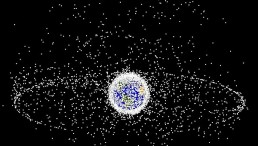Who doesn't love chocolate? Almost everyone does in fact, and because of this, the chocolate industry is one of the most lucrative business there is globally. With the growing demand for chocolate, farmers who grow cocoa, the main ingredient in chocolate, are struggling to keep up with the demand.
Recent research might just be the answer to this. Scientists based in Brazil and the United Kingdom have found out that the seeds of the jackfruit can be used as a substitute for cocoa to produce a product that that smells and tastes exactly like chocolate. In tropical countries, jackfruit seeds are sometimes cooked and eaten but mostly thrown away.
Scientists at the University of São Paulo, Technology College of Piracicaba, Methodist University of Piracicaba published their research results recently in the Journal of Agricultural and Food Chemistry. They discovered that the seeds of the jackfruit contain 3-methylbutanal, 2,3-diethyl-5-methylprazine, and 2-phenylethyl acetate; these are aromatic compounds that people typically associate with chocolate.
The process involved drying, fermenting, and roasting jackfruit seeds, from which they made four different flours and had 162 people rate their aromas. The scientists also judged the flours on the qualities that would make them suitable for producing cocoa products, like moisture content and pH, to determine whether these flours could be used to make chocolate. The results, though preliminary, are promising.
This is amazing news for chocolate lovers around the world. This new possible source of chocolate products could make chocolate supplies even more plentiful given jackfruits are huge. They weight anywhere from four to 70 pounds, and according to the researchers, seeds make up 15 to 18 percent of that weight and that's just way too much underutilized materials right there.
"Global cocoa production is around 3.7 million tons, and this is not expected to grow significantly in the next 10 years," write the authors of the new study, "however, demand by 2020 is estimated to be 4.5 million tons. This new source might just be the answer to sustain the industry."
If this research influences the cocoa industry, it could mean we won't have to go without delicious chocolate in the future. And given that the research received funding from the National Council of Technological and Scientific and Research Foundation (FAPESP), a Brazilian taxpayer-funded foundation that supports environmental and biodiversity initiatives, it seems possible that this research will eventually have an impact on policy.














